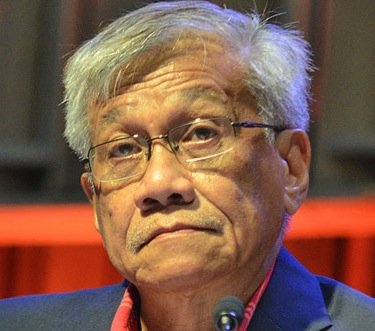
On July 19, 2011, three of my colleagues in Congress and I landed on Pag-asa Island in the Spratlys. Our mission: affirm our country’s sovereignty over nine islands and maritime formations in our possession amidst China’s increasingly aggressive behavior in the area.
In the days before our trip, Beijing condemned the mission and warned then President Benigno Aquino III to order us to cancel it. The Chinese Ambassador went to the Department of Foreign Affairs to lodge a protest. To his credit, President Aquino made no effort to stop us. Instead, Presidential Spokesperson Edwin Lacierda told the Chinese our government practiced the separation of powers and, besides, we were not doing anything wrong since we were visiting Philippine territory.
A few days ago, President Rodrigo Duterte announced to the world that he would go to Pag-asa to raise the Philippine flag on June 12 this year. Then, he did the unthinkable: fearing Beijing’s displeasure, he abruptly backed off. Duterte violated the basic rule of diplomacy when a small country faces a big country: you don’t allow yourself to be intimidated.
Practically the whole country supported the President’s initial decision to raise the flag at Pag-asa. There was great relief that the policy of appeasing the beast was finally over. Of course, if there were a credible Chinese threat to prevent Duterte’s visit by force, the President’s retreat would have been understandable. But there was no such threat; the Chinese were not so foolish as to threaten the use of force to prevent Duterte from visiting an island that has had a Filipino community since the late 1970s, when Pag-asa was made a municipality of the province of Palawan. The reason for the presidential retreat was more ignominious: Duterte backed off because he was worried Chinese President Xi Jin Ping might be offended.

Born to resist
Our visit to Pag-asa lasted no more than four hours. But it was hugely symbolic. The military garrison and community of about sixty people welcomed the congressional party, composed of myself, Representative Teddy Baguilat, and two other members of the 15th Congress. We also had with us then Palawan Governor Abraham Mitra, Pag-asa Mayor Eugenio Bito-onon, and Major General Juancho Sabban, the commander of the Western Command, who was one of the strongest backers of our visit.
We brought two Philippine flags, one of which was hoisted in a flag ceremony under a fierce noonday sun. Asked to speak, I remember saying, “"We come in peace. We support a diplomatic solution, but let there be no doubt in anybody’s mind, in any foreign power’s mind that if they dare to eject us from Pag-asa, if they dare to eject us from our rightful territories, Filipinos will not take that sitting down. Filipinos are born to resist aggression. Filipinos are willing to die for their soil."
After hiking around the island, enjoying its white sandy beaches, swimming a bit, and posing with the islanders behind a huge banner that read “West Philippine Sea,” we took off at around 4 pm. Our visit had made three firsts: Our flight was the first commercial plane to land on Philippine territory in the Spratlys. Ours was the first congressional delegation to visit the area. But the third was the most important: our mission was the first act of official defiance of China’s aggression into our national territory.
President Duterte had the opportunity to accomplish a far more significant assertion of our national sovereignty than ours. For he is not just an ordinary individual but the principal representative of a country that is being kicked around by a bully.
When he said he would go and raise the flag on Pag-asa, he made us all proud; when he turned tail, he shamed our country before the global community.
He still has a chance to salvage the national honor by proceeding with his original plan. – Rappler.com
Former Congressman Walden Bello led a congressional mission to affirm Philippine sovereignty over its possessions in the Spratlys in July 11, 2011. As congressman from 2009 to 2015, he championed an independent foreign policy, criticizing both China’s aggressive moves in the Spratlys and the United States’ drive to make the Philippines’ its military satellite to contain China. Bello authored House Bill 1350 renaming the South China Sea the West Philippine Sea. He made the only recorded resignation-on-principle in the history of the Congress in 2015 owing to principled differences with the Aquino III administration, one of which was Aquino’s concluding the Enhanced Defense Cooperation Agreement with the United States.
.